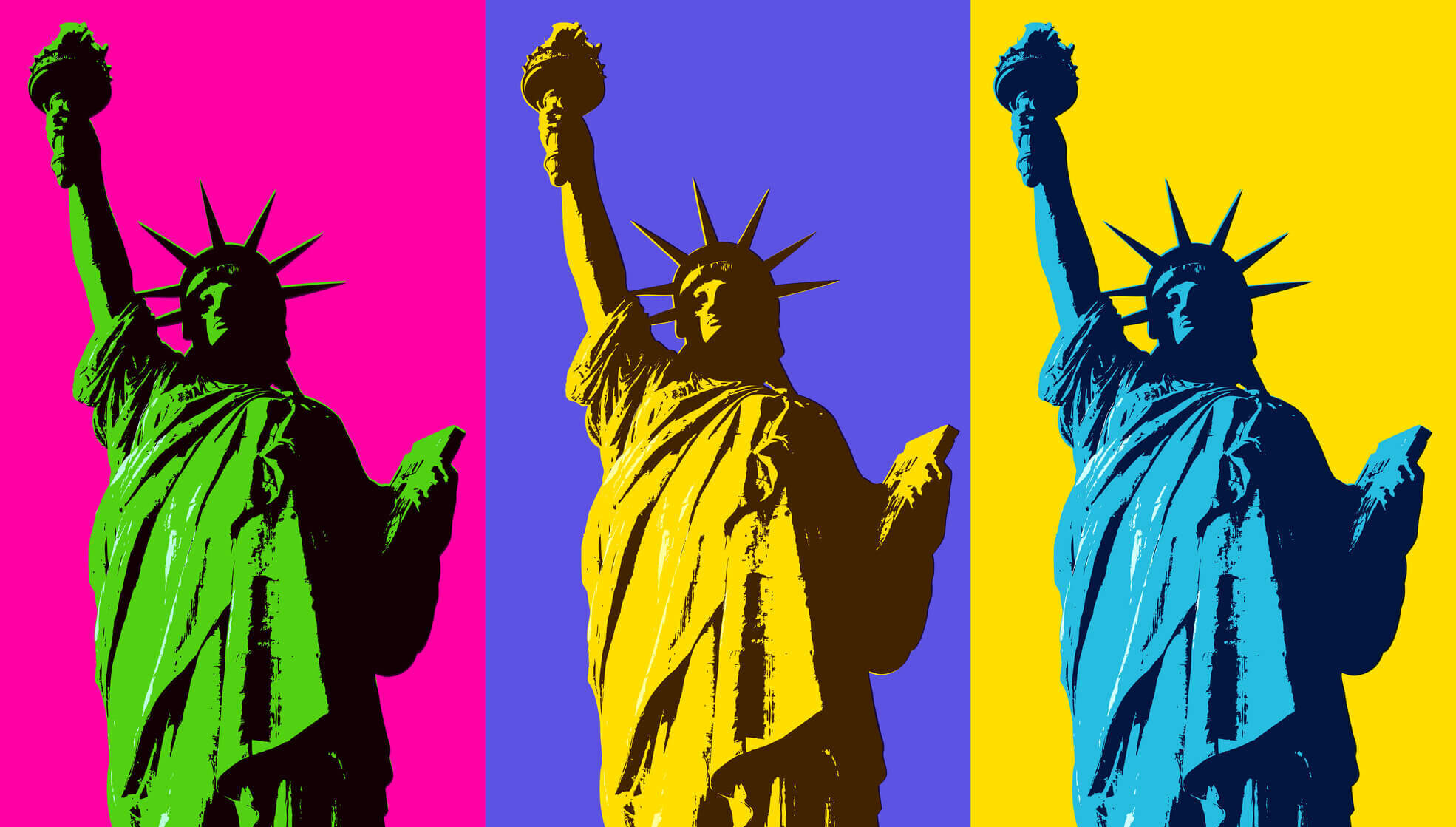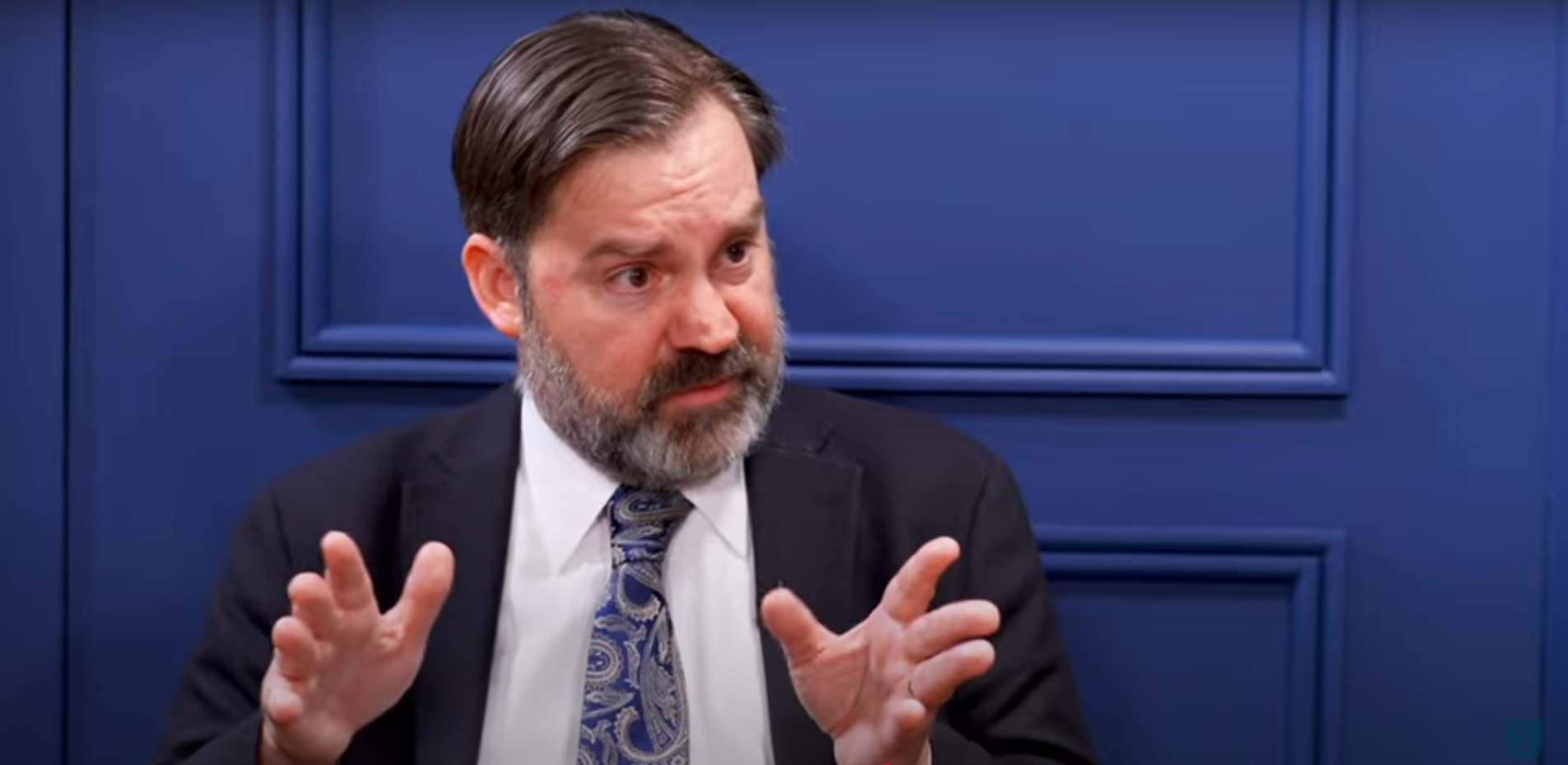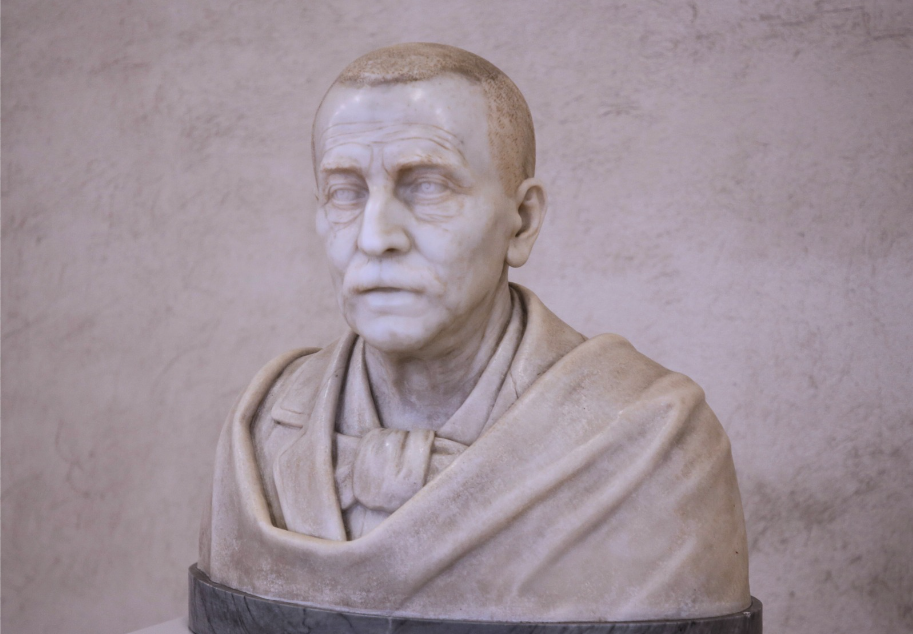Frank Chodorov (birth name Fishel Chodorowsky) was born in February 1887, the eleventh child of Russian immigrants. As recounted by his biographer Charles Hamilton, he grew up on the lower West Side of New York City. He graduated from Columbia University in 1907 and spent years searching for the right job. He taught high school, ran a clothing factory, and held numerous sales and promotion jobs, developing “a passionate commitment to individualism and to the free market.”
Chodorov tilted against windmills all his life. As a student at Columbia, he fought it out with the socialists, declaring that “man’s management of man is presumptuous and fraught with danger.” He voted in 1912 for the independent candidate Theodore Roosevelt rather than the Democrat Woodrow Wilson or the Republican William Howard Taft. He never voted again, arguing that politics was not the solution but the problem.
He called the income tax the root of all evil and took up the philosophy of the nineteenth-century reformer Henry George, the apostle of the single tax. In 1937, Chodorov became the director of the Henry George School of Social Science in New York City. He spent the next five years training teachers, setting up new courses, writing syllabi, raising money, and editing the school publication, the Freeman.
One issue in particular concerned Chodorov—the coming war, which he opposed as he did all wars. “No war is justified,” he wrote. “No war benefits the people.” Following Pearl Harbor, he dedicated himself and the Freeman “to the task of educating for an enduring peace.” His anti-war editorials angered readers and trustees who did not agree with his principled opposition. He was relieved of the Freeman editorship in the spring of 1942.
But Frank Chodorov never gave up. In November 1944, he published the first issue of analysis, a four-page monthly that helped shape the libertarian side of the modern conservative movement. Operating from a small suite of offices in lower Manhattan, analysis was, in the opinion of Chodorov’s friend and fellow libertarian author Albert Jay Nock, “by far the best contribution” to public affairs literature. It was never commercially successful (attracting a maximum of four thousand subscribers), but Chodorov did not despair.
“It’s fun to fight,” he argued, “when what you are fighting for stirs your imagination. . . . There is a lot of spiritual profit in being true to yourself.” He explained that the mission of analysis was not to teach individualism but to find, and inspire, individualists. Among those whom he found were William F. Buckley Jr., M. Stanton Evans, Murray N. Rothbard, and Edmund A. Opitz. Evans, the author of the Sharon Statement that launched Young Americans for Freedom and other seminal conservative documents, said that “the Chodorov imprint is visible in every phase of conservative effort.”
The socialism that Chodorov saw almost everywhere in America had been inspired by the Bolshevik revolution of 1917. It was presented under the banner of “progressivism” and was adopted by the architects of the New Deal. Socialism expanded as a result of the demands of fighting and winning World War II.
Postwar planners insisted, wrote the historian Mortimer Smith, that “the individual must surrender more and more of his rights to the state” in exchange for “security.” For Chodorov and those who believed in the individualist principles of the American republic, the only possible response to such a bargain was a resounding “Never!” His antistatism came from his fundamental belief in the individual as the basic unit of society. “Between the state and the individual there is always a tug of war,” he wrote. “Whatever power one requires must be to the detriment of the other.” Chodorov attracted a devoted but small readership.
The daunting economics of publishing led him to merge analysis with Human Events, a weekly newsletter begun in 1944 by Frank Hanighen, Felix Morley, and Henry Regnery. Chodorov moved to Washington, D.C., and became an associate editor of Human Events, giving him the opportunity to tutor young conservative writers such as Bill Buckley and Stan Evans.
In 1950, the sixty-three-year-old Chodorov decided to challenge one of the most powerful institutions in America—the academy, which he was convinced was largely responsible for the shift from individualism to socialism in America. He did not favor a radical laissez-faire-ism but a “historic liberalism” that accepted the doctrine of natural rights, proclaimed “the dignity of the individual,” and denounced “all forms of statism as human slavery.”
Chodorov argued that the only way to stop the descent into ever more statism was not by changing socialist laws through the political process but by inculcating the values that “make such laws impossible.”
Writing in analysis, he proposed the creation of a network of campus clubs for individualists, a lecture bureau, and a publication “directed at the student mind.” The collectivization of America, he wrote, began when college students of the early 1900s adopted socialist slogans, impressed by their pretensions to “scientific exactitude.” They organized the Intercollegiate Socialist Society (which changed its name to the League for Industrial Democracy in 1921). ISS’s initial members included such future luminaries as Clarence Darrow, John Reed, Walter Lippmann, Walter Reuther, Frances Perkins, Norman Thomas, and Stuart Chase.
Chodorov’s plan was a variation of a pamphlet he had written, “A Fifty-year Project to Combat Socialism on the Campus.” The way to promote individualism, he wrote, began with literature and lectures. Omitted was any attempt to convert the faculty who had been subjected to “socialist indoctrination” for the past thirty years. They would have to be written off, he said, until they were replaced by a new faculty now sitting in lecture rooms.
Chodorov argued that the only way to stop the descent into ever more statism was not by changing socialist laws through the political process but by inculcating the values that “make such laws impossible.” Such a campaign, he conceded, would be difficult and lengthy, lasting as long as fifty years and calling for “a sincerity of purpose amounting to religious fervor.”
The idea of a fifty-year college project might have lain dormant except that Chodorov decided to revise and publish the proposal in the September 1950 issue of Human Events. The reaction was immediate and enthusiastic.
Letters poured in, praising the plan, although some anxious parents wanted the education to begin in kindergarten. Thousands of copies of the Human Events article were distributed. Yet no organizational steps were taken because there was no seed money and no one to run the program. The idea simmered until March 1952, when Chodorov revisited the subject in Human Events.
In an essay titled “The Adam Smith Clubs,” Chodorov argued that student groups were needed “to find and help the submerged individualism” that was hidden on campus and provide an opposition “to the collectivism being ladled out by the professors.” The reaction was not quite as dramatic as the one to “Our Children’s Children,” with one critical difference—a $1,000 check from one of the most generous benefactors of the conservative movement, the Sun Oil Company founder J. Howard Pew.
Chodorov was uncertain how to respond to Pew’s largesse. Talking about the need for an intercollegiate society was one thing; organizing it was another. He kept the check in his desk drawer for days and even considered returning it. At last, he showed the $1,000 check (equal to $10,000 today) to Frank Hanighen. “I have one rule,” Frank said to Frank. “Never send money back.”
With Hanighen’s encouragement, and after meeting Pew in his Philadelphia office, Chodorov formalized his idea. On April 3, 1952, the paradoxically named Intercollegiate Society of Individualists (ISI) was incorporated in the District of Columbia, with Frank Hanighen, Frank Chodorov, and Patricia Lutz (Hanighen’s secretary) as incorporators. William F. Buckley Jr. was listed as president, Frank Chodorov as vice president. Busy promoting God and Man at Yale, a searing critique of his alma mater, Buckley accepted Chodorov’s invitation to head ISI after being assured that his responsibilities would be strictly limited.
It would have been difficult for the young author to say no—Chodorov had helped edit God and Man at Yale and had recommended its publication to the Chicago publisher Henry Regnery. Chodorov had also published Buckley’s first professional article in Human Events, paying him the munificent sum of $25. Buckley later wrote of Chodorov’s tutelage: “It is quite unlikely that I should have pursued a career as a writer but for the encouragement he gave me just after I graduated from Yale.”
The articles of incorporation stated that ISI’s objective was “to promote among college students, specifically, and the public, generally, an understanding of and appreciation for the Constitution of the United States of America, laissez-faire (free market) economics and the doctrine of individualism.” In the beginning, ISI operated more like a family business than a formal corporation. In 1953, Chodorov informed Buckley via a brief note: “Am removing you as president. Making myself pres. Easier to raise money if a Jew is president. You can be V-P. Love. Frank.” Much occupied with starting National Review, Buckley was relieved to be relieved.
Eager to expand the ISI universe, Chodorov sent a promotional letter to some five thousand Human Events readers asking them for the names of college students “who might be interested in reading libertarian literature.” Hundreds of letters containing student names arrived at the offices of Human Events. The unvarying plea of the readers was, “Save my son from socialism.”
A tiny group of ISI lecturers began appearing on campus, led by Chodorov, Buckley, and the twenty-nine-year-old E. Victor Milione, who would become the society’s chief executive and intellectual conscience for the next thirty-five years. Undeterred by the fact, readily admitted by Chodorov, that ISI had only $2,300 in its bank account, Milione signed on, in the spring of 1952, as ISI’s first and only campus organizer.
Milione would go from campus to campus, meeting ISI members, passing out literature and enlisting new members by a somewhat unorthodox method. Milione would set up a table outside the dining hall and pin a large “Taft for President” button to his jacket. He waited for someone with an “I Like Ike” button to challenge him. As he explained why he preferred Senator Taft to General Eisenhower, Milione would discuss American history, the founding of the Republic, and the glories of Western civilization.
When Milione proposed an ISI advisory board, Chodorov responded, “Aristotle and Spinoza are our board.” But he did not try to prohibit his younger colleague from forming a board that included Buckley, Human Events editor Frank Hanighen, the professors William H. Peterson and E. Merrill Root, the Hollywood film star Adolph Menjou, and a longtime aide to Douglas MacArthur. It was an impressive lineup for an organization barely two years old and reflected Milione’s determination to broaden ISI’s intellectual foundation. When he invited the traditionalist Russell Kirk to join the board, Kirk noted disapprovingly the number of agnostic and libertarian advisers and suggested that if ISI had chosen for its pantheon:
Moses in place of Lao-tse, Aristotle in place of Zeno, Pascal in place of Spinosa, Falkland in place of Locke, Dante in place of Milton, [Samuel] Johnson in place of [Adam] Smith, Ruskin in place of Mill, Burke in place of Paine, Adams in place of Jefferson, [James Fitzjames] Stephen in place of Spencer. Hawthorne in place of Thoreau, Brownson in place of Emerson, you might succeed in capturing the imagination of the rising generation.
In the years to come, Milione was guided by Kirk and his conservative colleague Richard Weaver, the author of Ideas Have Consequences, as he scheduled campus speakers and distributed books to ISI members. If the selections were more traditionalist and less libertarian than he would have chosen, Frank Chodorov was content to have planted the seeds for his fifty-year plan to counter socialism at American colleges and universities.
In November 1962, slowed by a stroke and other health problems, Chodorov stepped down as ISI president. It had been twelve years since he had written “For Our Children’s Children,” his half-century plan to challenge the collectivist zeitgeist on campus, and a decade since J. Howard Pew’s $1,000 check had led to ISI’s incorporation. Chodorov watched the society grow from a borrowed desk, a mailing list of six hundred, and a little over $2,000 in the bank into a national organization with headquarters in Philadelphia, regional offices in Indianapolis and Menlo Park, California, a mailing list of eighteen thousand, and an annual budget of $200,000.
His modest proposal had blossomed into a comprehensive program of books, pamphlets, and publications such as the Individualist, ISI Campus Report, and Under Thirty. (Modern Age would join the roster later.) Respected scholars such as Milton Friedman, Martin Diamond, Thomas Molnar, and Francis G. Wilson lectured at leading universities under ISI sponsorship. As Chodorov had hoped, ISI opened up the minds of young men and women who became intellectual leaders, including Robert Schuchman, Philip Crane, John Lehman, Garry Wills, Edwin Feulner, and M. Stanton Evans. A grateful Chodorov relinquished the ISI presidency to the man most responsible for ISI’s success: E. Victor Milione.
On December 28, 1966, Frank Chodorov, author and lecturer, salesman and teacher, varsity football player at Columbia and lover of cowboy movies (“because the good guys always win”), radical libertarian and atheist who came to God in his last years, founder and president of the Intercollegiate Society of Individualists (renamed the Intercollegiate Studies Institute), died in New York City at the age of seventy-nine.
He always spoke, said Bill Buckley at Chodorov’s funeral, “from a heart full of belief, enlightened by a mind keen and observant and understanding.” There was praise aplenty about someone who had touched the hearts and minds of many, young and old.
“How fiery, how dynamic, your classes were,” recalled a former student. “He was constantly on the prowl in search of truth,” remarked a longtime ISI trustee. But truth, he liked to say, was like mumps or measles. “A lot of people are immune. All you can do is expose them to it.”
Chodorov believed that young people were especially receptive to the truth. In his autobiography, Out of Step, he said it was possible to anticipate “a renaissance of individualism” after fifty years of collectivism. But the renaissance wouldn’t just happen: “we must do a selling job,” particularly among the youth.
“They will not buy our philosophy lock stock and barrel,” he warned. They will take “what seems good to them, modernize it, build it into a panacea [of freedom] and start a revolution.”
“God bless them.”















